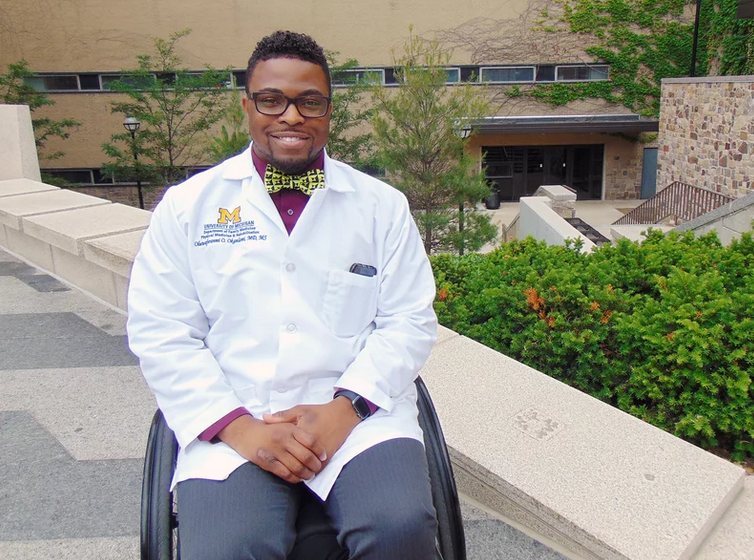A growing movement of current and future Doctors with disabilities is changing the culture of medicine.
Lisa Meeks, a Psychologist and Researcher at Michigan Medicine specializing in disabilities in medicine and medical education co-authored a report which found that many Doctors still conceal their disabilities out of fear of stigma or bias.
Meeks wondered if Doctors with disabilities saw more people like themselves, would they talk more openly about the challenges and opportunities? She started a social media campaign with the hashtag #DocsWithDisabilities.
Bonnielin Swenor, an Assistant Professor of Ophthalmology at the Wilmer Eye Institute at Johns Hopkins University, has myopic macular degeneration, a condition that leaves her with extremely limited vision. She rarely discussed her disability with peers because she worried that they would judge her.
Then one day a patient said, “If you can’t talk about your disability as a researcher at the Wilmer Eye Institute, then why should I?” She has thought about this every day since. “If people in scientific and medical professions can’t be open about this, what kind of message are we sending to our patients?”
Dr. Okanlami earned his M.D from the University of Michigan before matching into Orthopedic Surgery at Yale. At the beginning of his 3rd year, he suffered a spinal cord injury, paralyzing him from the chest down. After two surgeries and intense rehabilitation, he was blessed with some return of motor function.
Okanlami is now a family medicine Doctor at the University of Michigan. He was awarded one of Michiana’s 2017 Forty under Forty awards and has a catchphrase, “Disabusing Disability,” hoping to demonstrate that disability doesn’t necessarily mean inability, with a goal of creating a health system that is both inclusive and accessible for all.
Dr. Lisa Lezzoni, a professor of medicine at Harvard Medical School, has distinguished herself as an expert in healthcare inequities, especially for the disabled community.
In her American Medical Association Journal of Ethics article, she discusses how Doctors have little or no direct contact with patients in their everyday settings, so they remain ignorant of the adaptations and accommodations that disabled people routinely rely on to live independent, productive lives. Along with other factors, this lack of knowledge explains why people with disabilities who want to enter the medical profession often face barriers that limit or deny their choices.
Lezzoni believes “increasing the number of Physicians who actively identify as having a disability and who require accommodations to practice their profession could improve health care experiences and outcomes for patients with a disability.”
Brad Frazee, 42, an ER Doctor for 18 years was struck and run over by a Range Rover while riding on a bike trail. He had a T10 spinal cord injury and a badly damaged shoulder. Eight months later, he showed up at Highland Hospital in Oakland in his wheelchair, ready to resume his job.
Frazee said, “In the hospital, you’re at the mercy of all these people who don’t know you. There is a profound sense of powerlessness, a lack of control, and being a patient in this situation is what most Doctors do not appreciate.” But with patients, when he comes in, “they instantly know I have been through what they are going through. It could be any of a host of things with life-changing consequences, cancer, trauma. I know they are in for hell, and I tell them ‘listen, you need to kick back and let the docs work — it will be tough … but you will get through it.’”


